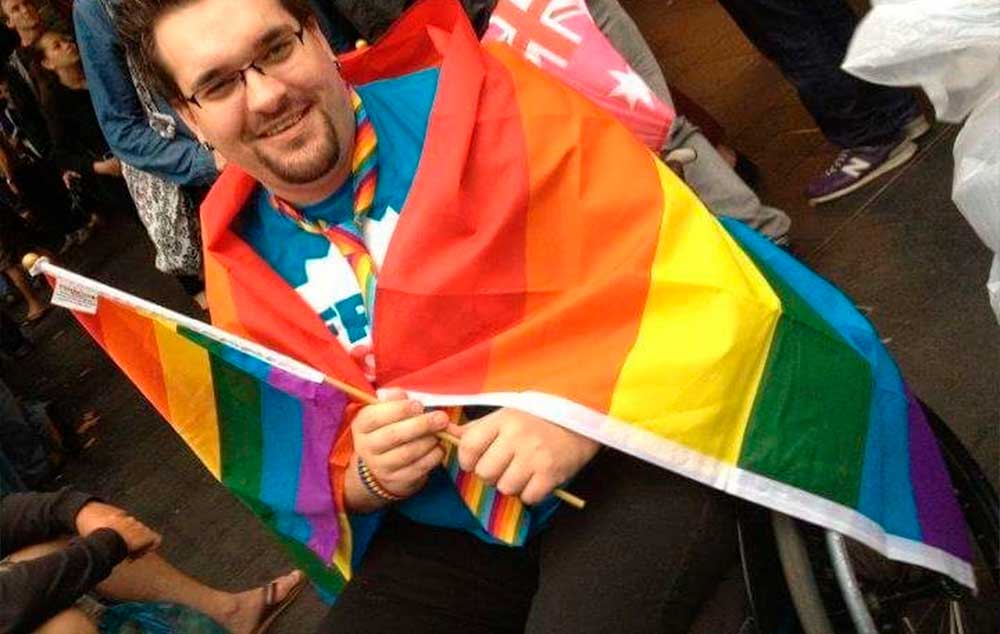
We Have Sex Lives Too: People With A Disability Want To Be More Included This Mardi Gras
One reason is wanting relationship recognition in their own country. Another is purely logistical.
“To travel to New Zealand or overseas to get married, it’s a lengthy process,” Dennis, who has spina bifida, told BuzzFeed News. “You’ve got to think [about] travel insurance, and for us, we have a higher premium because we have a disability.
“Myself and my partner, we’re waiting until it becomes legal.”
On Saturday night Dennis will again march at the annual Sydney Gay and Lesbian Mardi Gras parade with a float run by LGBTI people with a disability. He said it’s important to him to march with the group because “we seem to be forgotten”.
“When I say forgotten, it’s this typical cliche – gay guys have wonderful six packs, gorgeous smiles, everything,” he said.
“That doesn’t really exist… but we seem to think it does. We tend to exclude parts of the community.”
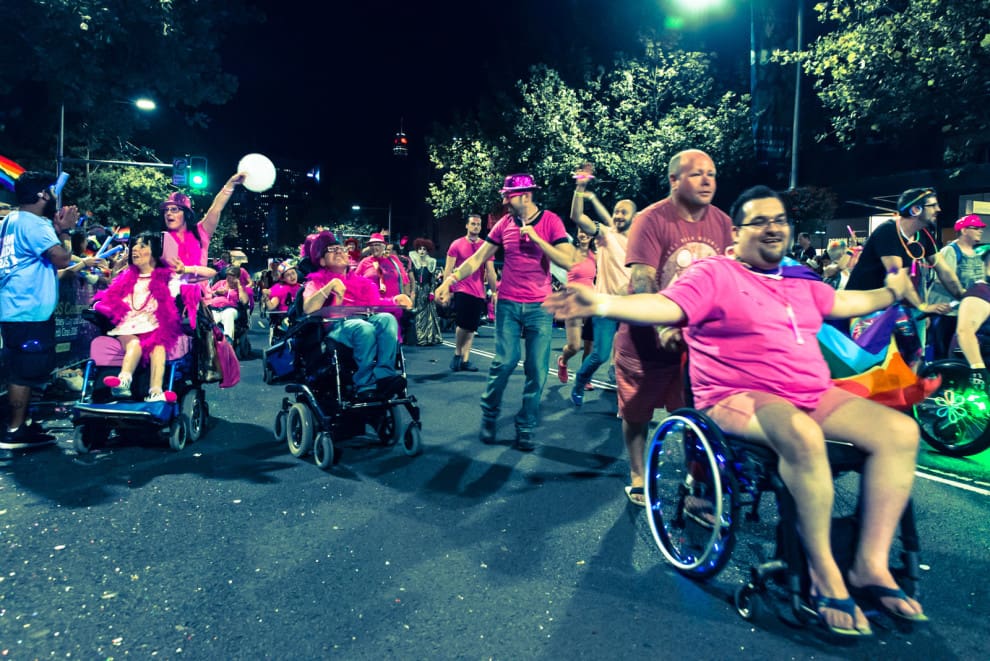 The float Dennis is joining is run by People With Disability Australia (PWDA), the Cerebral Palsy Alliance, and service provider Northcott.
The float Dennis is joining is run by People With Disability Australia (PWDA), the Cerebral Palsy Alliance, and service provider Northcott.
This year the government agency responsible for rolling out the National Disability Insurance Scheme (NDIS) will also join the float for the first time.
PWDA co-CEO Matthew Bowden told BuzzFeed News his group – which is entirely led by people with a disability – is working with the agency to help LGBTI people.
“There are problems with services being provided by organisations – or workers in organisations – that are homophobic,” he said.
“Once [the people] have funding given to them, rather than to the service provider, and they have the power to purchase their services, hopefully there will be less experiences of discrimination and vilification on the basis of sexual and gender identity.”
Bowden said the parade entry will make another important statement: people with a disability have sex lives too.
“People with disability [have] the same sexual interests as the rest of the community, and the same sexual interests as the LGBTI community, regardless of having a disability,” he said.
Dennis is used to people making assumptions about his body and sex.
“When I’ve been on dates, generally they would ask, ‘Does it still work down there? Can you get it erect? Would you be able to come?’,” he said.
“As soon as they did that, I was like, ‘Yeah, see you later, bye Felicia’. And I wheel off.”
He said people with a disability have the same feelings, attractions, needs and wants as any other person.
“We might have to do things very differently, or a little bit differently,” he said. “Everything varies depending on the person’s disability – or ability, as I like to say.”
McLoughlin, who is autistic and has Ayme-Gripp syndrome, told BuzzFeed News it is a “pet peeve” of his when people assume he can’t make friends, socialise or be in a relationship.
“I can be all those things,” he said. “It’s just that other people need to be more open-minded.”
McLoughlin said it was easy for people with a disability to feel left out of the LGBTI community and that there needed to be money and services dedicated to inclusion.
“[We have to] be able to go out clubbing and meet other people who are like us and who think like us, who actually behave like us,” he said.
“It’s not right that there are places we can’t go because they’re not accessible, or we’re on social welfare like Centrelink, and we don’t have enough money to go out on a Friday or Saturday night to the local gay bar, or with friends, or on a date,” he said.
Dennis agreed, saying “we need to start conversations with landlords, with business owners” about accessibility: “It’s important that we say to them, ‘You are forgetting a section of the community’. At the end of the day we are the same, so why are we being shunned and ignored? We shouldn’t be.”
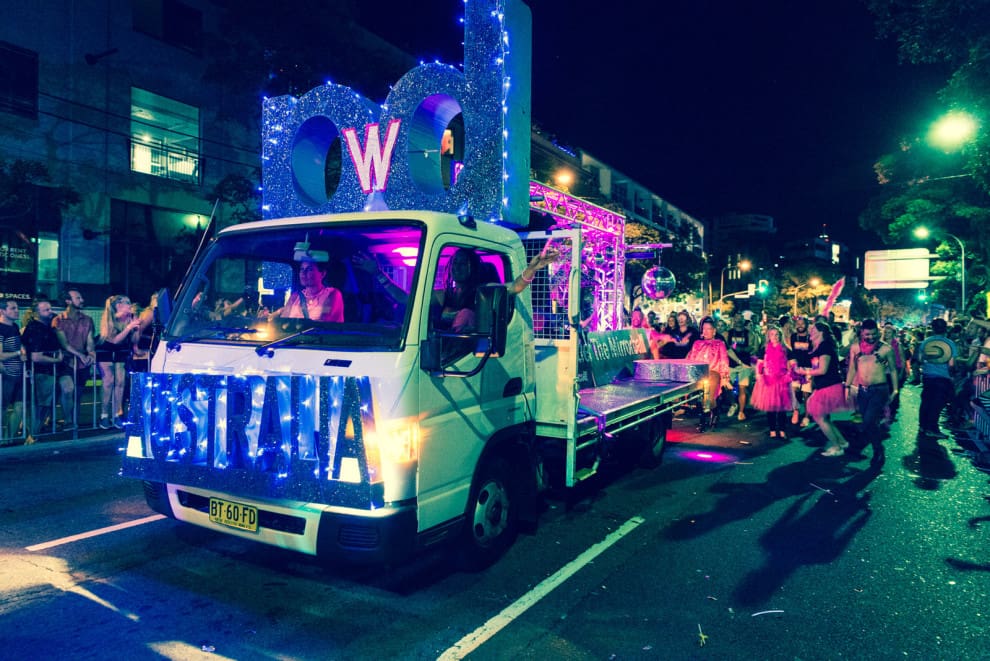 McLoughlin said the NDIS could play a part by ensuring social inclusion is woven into individual plans.
McLoughlin said the NDIS could play a part by ensuring social inclusion is woven into individual plans.
“That’s going to include doing things in a setting where they want to be able to be part of the community, not keep [to] themselves at home and feel isolated and secluded.”
Maryanne Diamond from the National Disability Insurance Agency told BuzzFeed News the agency recognised LGBTI people with a disability face specific challenges.
“It’s another layer of feeling locked out of the community, and distrust of government, and that’s why we’ve got a lot of work to do,” she said.
Source: Buzz Feed
Compartilhe
Use os ícones flutuantes na borda lateral esquerda desta página
Siga-nos!
Envolva-se em nosso conteúdo, seus comentários são bem-vindos!
Artigos relacionados
Acessibilidade no transporte aéreo. Atualização das regras.
Acessibilidade no transporte aéreo. Revisão da Resolução nº 280/2013 da ANAC através de consulta e audiência pública.
Inclusão no filme Wicked. Atriz cadeirante chama a atenção.
Inclusão no filme Wicked. Marissa Bode é uma atriz com deficiência na vida real, e sua deficiência não foi um impedimento para a atuação.
Diretrizes da ANPTUR para o Turismo Brasileiro
Diretrizes da ANPTUR para o Turismo Brasileiro. Acessibilidade é um dos capítulos desse importante guia orientador para o turismo.

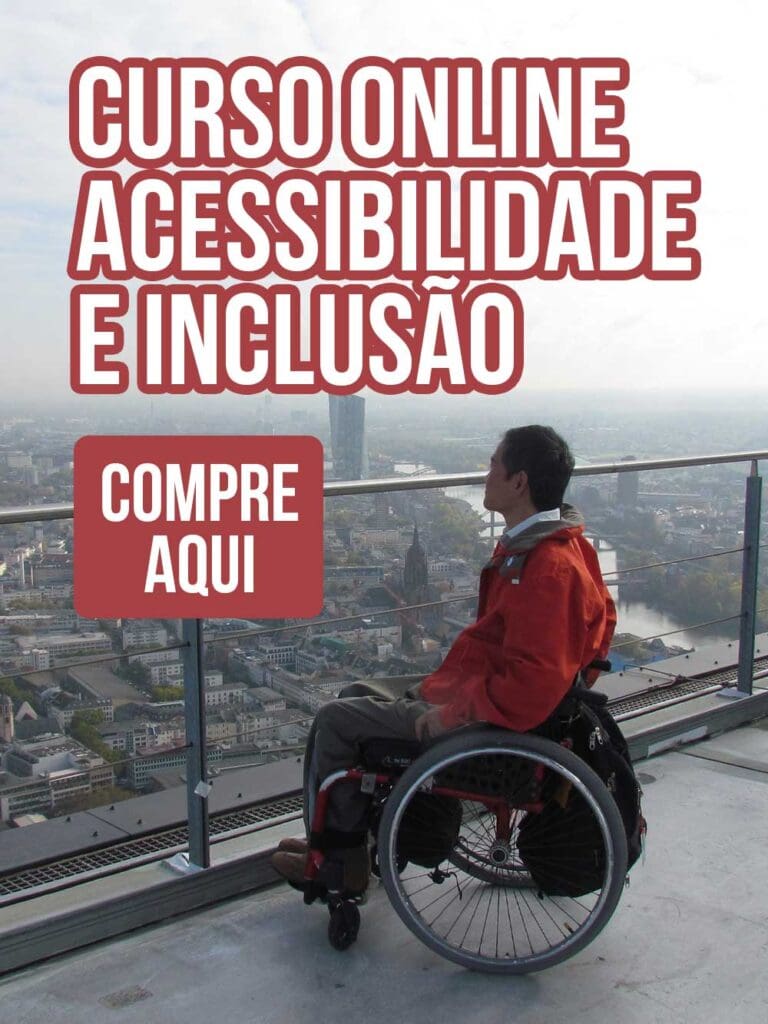
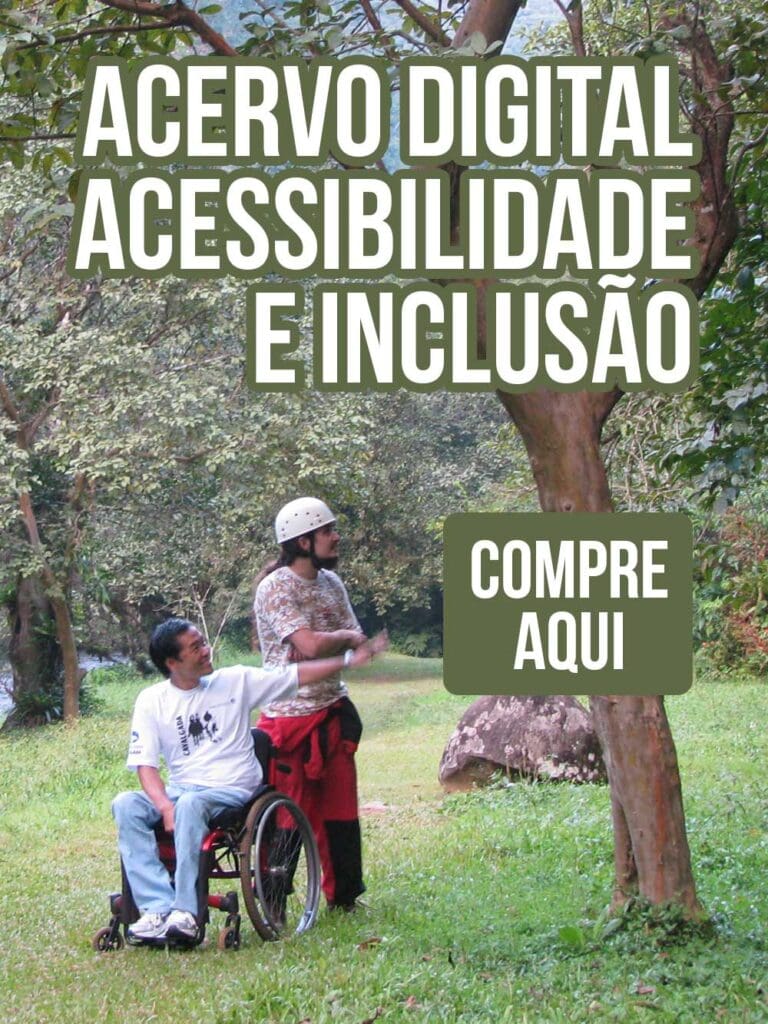
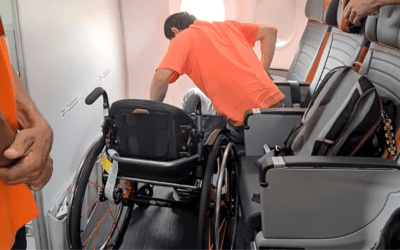
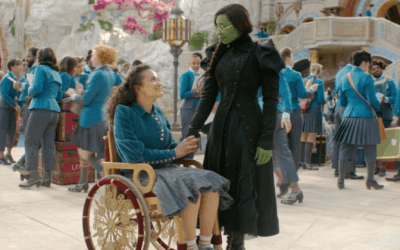
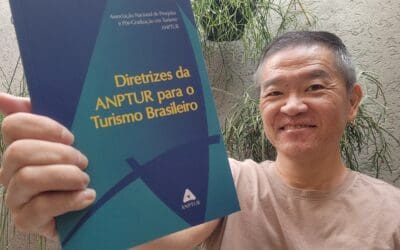
0 comentários